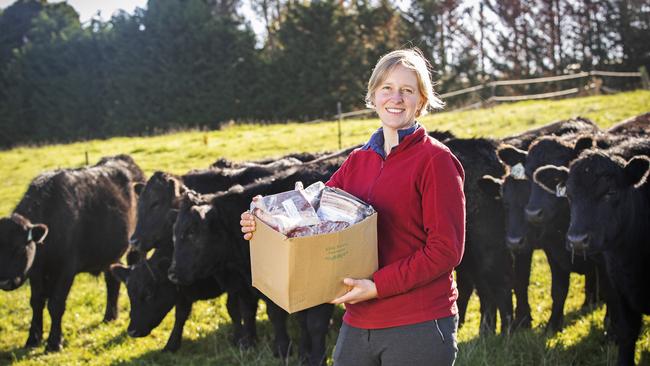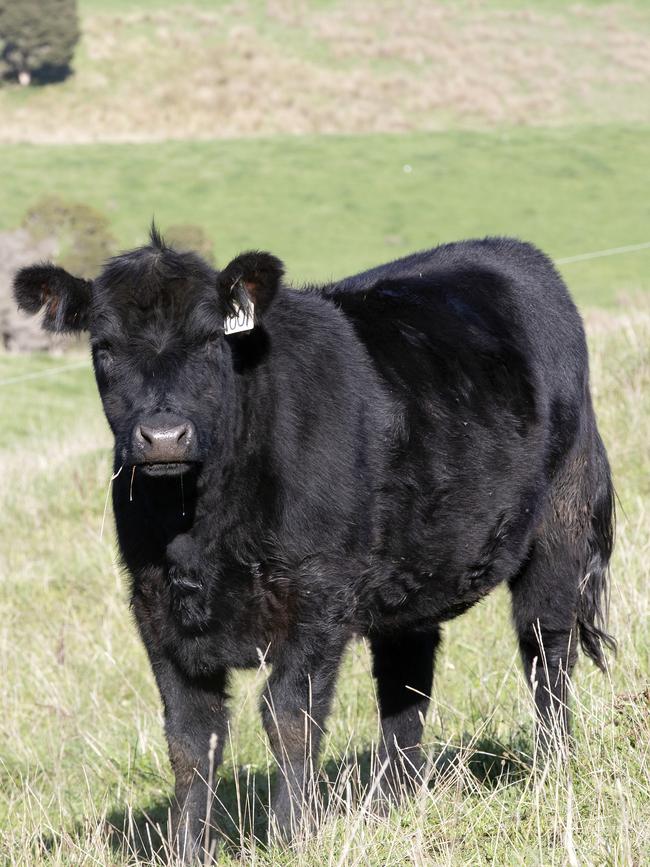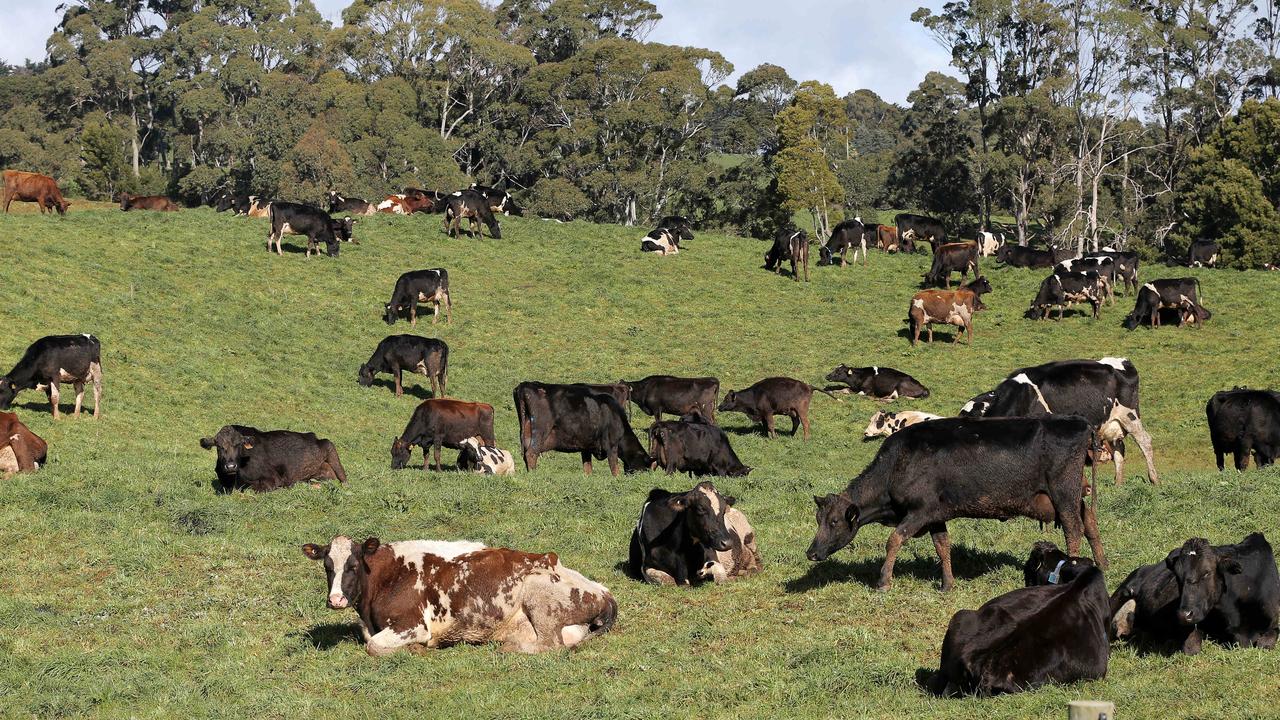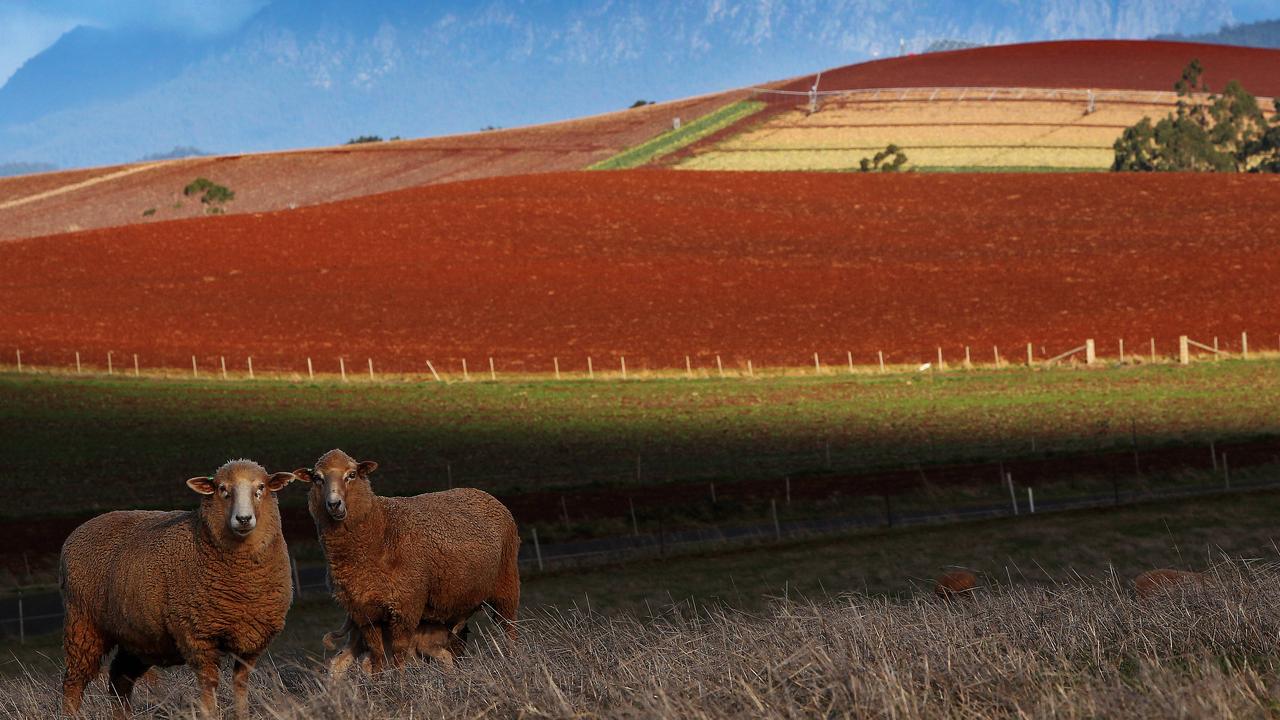Glen Torrie Pastures filling a gap in beef market
A North West Tasmanian family has found success selling their beef straight to customers and they have taken on regenerative practices for their pastures. Karolin MacGregor reports.

WHEN North-West farmers the Kentish family were struggling to find top-quality
locally grown beef to buy, they decided to do something about it.
Now the family, who farm near Doctors Rocks near Burnie, have established their own direct-to-customer boxed-beef business, Glen Torrie Pastures.
David and Perina Kentish moved to Tasmania about 16 years ago after visiting the state for many years for hiking and fishing holidays.
Their son, Gordon Kentish, and their daughter and son-in-law, Pippa and Marcus Mills, also made the move south to Tasmania about eight years ago with their own children.
While they were farming on New South Wales the family ran an Angora goat operation.
“I think mum and dad had been keen to move down here for quite a while they were just waiting for the right time,” Mrs Mills said.
As a teenager at the time, Mrs Mills said she was not initially all that keen on the decision, but after having children of her own that changed.

Together the family now run a 200ha farming operation across three properties.
After starting out with a small number of cattle, the family have gradually grown their herd and now run about 120 breeding cows.
Mrs Mills said a strong interest in genetics, particularly from her mother, had seen the family focus on sourcing bulls from some of the state’s top Angus studs including Landfall and Cluden Newry.
“Mum is very keen, and Dad has been too, on breeding really sound cattle that also produce good quality beef, that’s something we’re quite proud of,” Mrs Mills said.
The family are now also embarking on an artificial insemination program in the herd to introduce new genetics, which they will use to produce heifers that will be retained in the herd.
For a number of years the family sold off their calves each year as store cattle.
However, in more recent times as their property area has expanded, they started finishing their youngstock on farm and selling them to processor Greenhams.
Mrs Mills said it was a conversation a couple of years ago about where to buy beef that got them all thinking.
“A few years ago our freezers were empty and we thought right, what are we doing,” she said.
“We’d had trouble finding really good quality beef on the local
market and I’m sure we weren’t the only ones.”
In November 2018 the family launched their beef business, supplying product directly to customers.
At first their customers were family and friends as well as neighbours, who were keen to
support the business.
Since then their production has now doubled and they are selling boxes of beef to customers from Sisters Beach through to Devonport and have also had some orders from Hobart.
Mrs Mills said before this year’s coronavirus crisis they had also been selling small amounts into Melbourne.
The cattle are processed at the local Lapoinya abattoir.
Mrs Mills said they liked to be at the abattoir when the carcasses are being packed so they were able to accommodate individual requests from customers with different
preferences.
“We have a nose-to-tail principle, which is really important to us, so all parts of the animals get used,” she said.
“It means that everyone gets cuts from different parts of the animal and there’s no wastage.”
This sometimes sees their customers cooking with cuts they are not that familiar with, so Mrs Mills said they had recently been adding recipe suggestions to their website.
As well as breeding top-quality cattle, the family are also focusing on improving the health of their pastures as well as long-term sustainability.
To do this Mrs Mills said they had been adopting regenerative farming techniques, which includes using multi-species pastures.
They have also limiting the use of synthetic fertilisers.
As well as grass, the family have also sown pastures that include
forage radish, a number of different legumes and vetch and they will also be sowing buckwheat.
“We’re finding that the bigger the range the better the response,” she said.
“The cattle absolutely love it, we see them get more excited when they go into a mixed species and they’ll walk past straight pasture.
“I guess it’s like a big bowl of salad greens for them.”
Mrs Mills said increasing soil carbon was one of their aims and something she is passionate about.
“We’re starting to look at a more date-driven approach to that as well,” she said.
When it comes to production, the family have also had to adjust their system to ensure they have cattle finished and ready to go throughout the year.
The family’s business is one of 17 businesses that has been included in Seedlab Tasmania’s Cultivate program.
“Our involvement with Seedlab has really allowed us to see the value in what we’re doing and now it’s about how we can get that message out there,” Mrs Mills said.
“People want good quality produce, but they also want to know where it has come from and how it has been produced.”
MORE TASMANIAN COUNTRY


